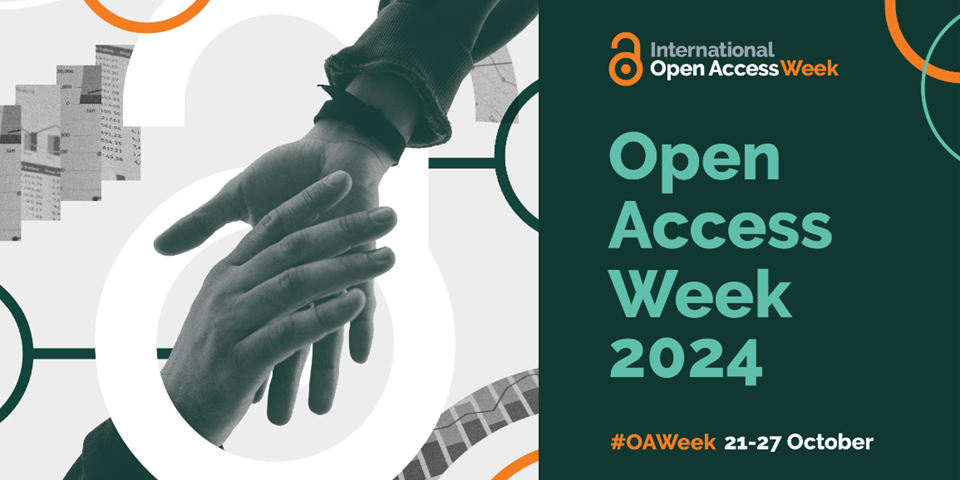News
Celebrating Open Access Week: Open Access Smorgasbord

To celebrate International Open Access Week 2024, the Library hosted a lunchtime panel discussion, "Open Access Smorgasbord".
This year’s theme asked us to put Community over Commercialisation, and prioritise approaches to open scholarship that serve the best interests of the public and the academic community.
You can find a recap and recording of the session below.
Core benefits of Open Access
The panellists discussed the numerous benefits of Open Access for researchers and institutions. Open Access ensures that research is shareable and often leads to faster publication processes. It increases visibility, metrics, and collaboration opportunities, potentially leading to increased funding. Open Access also removes barriers to accessing information, benefiting people outside academia, such as industry professionals and those in developing countries. This inclusivity can significantly impact practice and policy, promoting education for all and reducing the cost of education for students.
Navigating the Open Access landscape
Academics can effectively navigate the Open Access landscape by understanding their funders’ Open Access policies. For instance, the ARC and NHMRC require that research outputs arising from their funding be made openly available within specific timeframes. Researchers should explore various options for making their work openly available - not just for journal articles, but also research data and non-traditional research outputs. Paying an Article Processing Charge (APC) or choosing a journal included in a Read & Publish Agreement is not the only way to achieve Open Access - the Library is a valuable resource for guidance on these matters.
Open Access and equity
Open Access contributes to equity and inclusion by allowing students and libraries to access resources without purchasing them. However, the method of achieving Open Access matters. Paying an APC to a commercial publisher may not be as equitable as publishing in a Diamond OA journal, which does not charge fees to authors or readers. Openly publishing research data can enable others to reuse and transform it, fostering new knowledge and research.
Ensuring reputable Open Access
To ensure the reputability of Open Access publishers and publications, researchers can use resources like the Directory of Open Access Journals and Ulrich's, as well as checking if a journal has been indexed and if the author is well-regarded in their field. Use Sherpa Romeo to provide insights into publisher Open Access policies.
Copyright licenses in Open Access
The discussion also covered the six Creative Commons licenses, which provide a standardised way for creators to grant public permission to use their work under copyright law, and the ways they can be applied. These licenses support the UN Sustainability Goals by enabling collaboration, sharing, and building on others’ work without fear of copyright infringement.
Session recording
The "Open Access Smorgasbord" panel discussion provided valuable insights into the benefits, challenges, and strategies for navigating the Open Access landscape, reinforcing the importance of community-driven approaches to open scholarship.
You can view the recording of the Open Access Smorgasbord session below:
More resources
Contact the Library for more information about Open Access materials.
News
Celebrating Open Access Week: Open Access Smorgasbord
Posted on